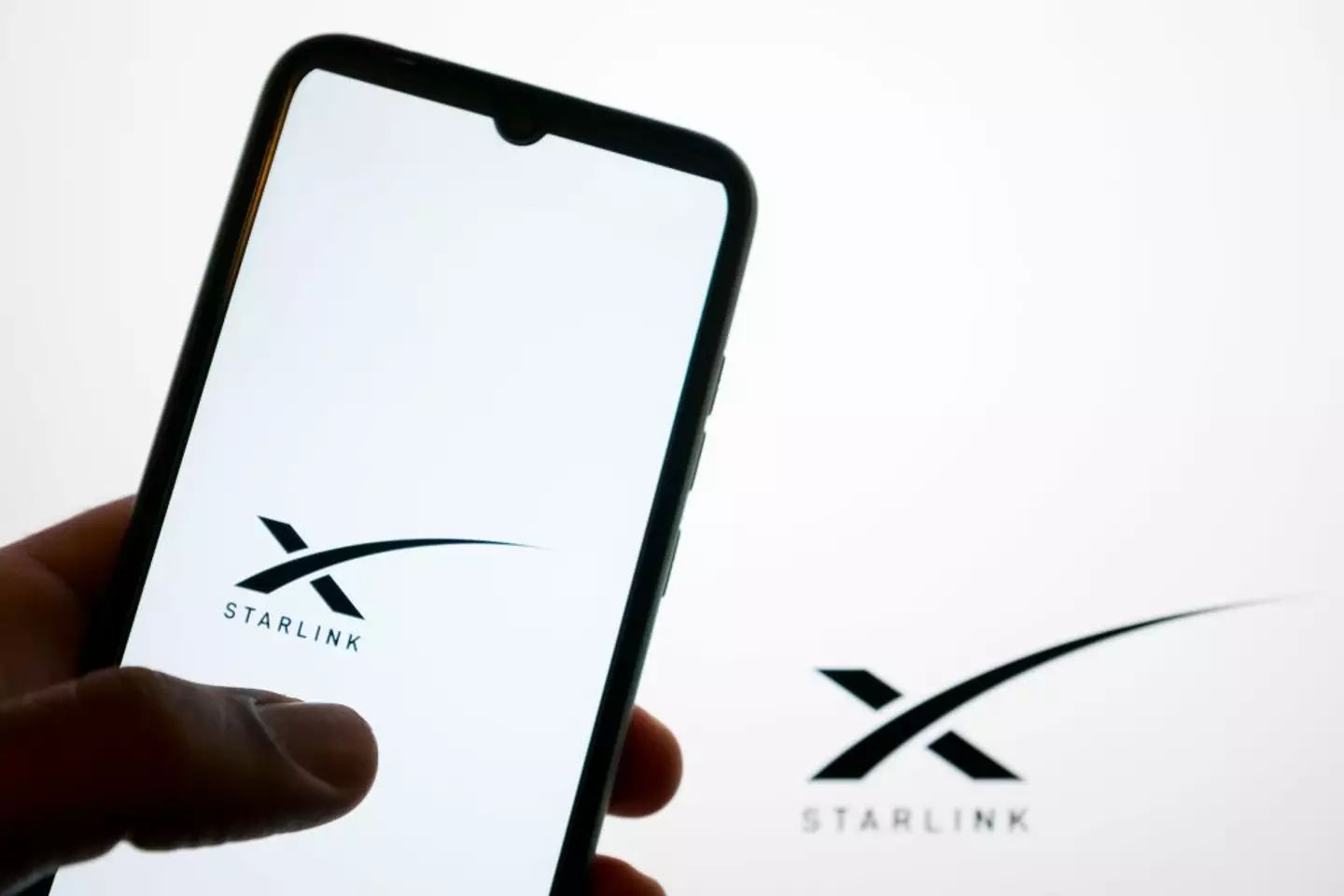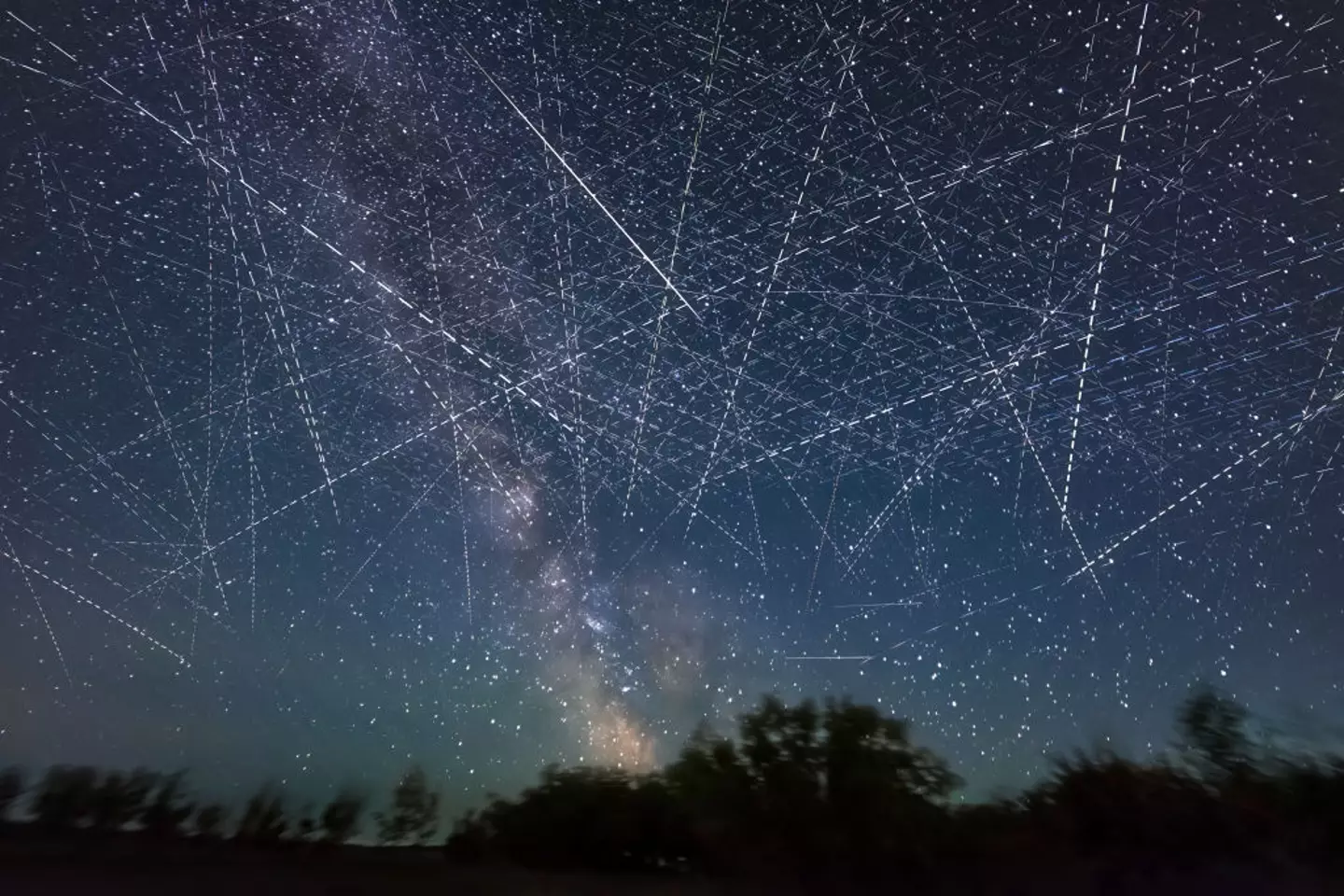
Elon Musk's Starlink satellites could pose a catastrophic threat to our ability to study space.
The Tesla CEO's ambitious plan to blanket the planet with internet-providing satellites might be creating a much bigger problem than anyone anticipated.
Astronomers have discovered that Starlink satellites are essentially 'leaking' radio waves as they orbit Earth, creating interference that threatens sensitive telescopic observations. This isn't intentional radio traffic used to provide internet service, rather it's accidental emissions that are leaking from the satellites' electronics. And the scale of the problem is becoming clear as more satellites join the Starlink constellation.
A team of scientists, led by Steven Tingay at Curtin University in Australia, have been tracking signals from nearly 2,000 Starlink satellites.
Advert

Using a prototype telescope from the Square Kilometre Array-Low observatory (SKA-Low) in Australia, their findings were pretty alarming for the future of radio astronomy.
The project, which aims to use more than 100,000 linked telescopes to study cosmic origins, could find its primary mission compromised by Starlink before it's even fully operational.
Tingay's research also revealed that the satellites are transmitting in two frequency ranges that are supposed to be protected for radio astronomy by the International Telecommunication Union (ITU).
Even more concerning, the leaked signals are 10,000 times stronger than the faint radio waves from neutral hydrogen clouds that existed when the first stars began forming. These ancient hydrogen signals are precisely what astronomers aim to detect in order to understand how the universe evolved from its earliest moments.

“If you look at the signal strength produced by these unintended emissions, it’s not unusual for them to be comparable to the brightest natural radio sources in the sky,” said Tingay. “It’s like taking the strongest sources in the sky and putting a bunch more artificial ones in the sky and making them move around a lot — that has a lot of impact, especially on experiments that seek to be ultra-sensitive.”
The real problem is the electronic leakage that happens from onboard electronics, regardless of whether the satellites are actively providing internet service, Tingay added.
If Starlink interference continues to grow, space scientists might lose our ability to study the universe's cosmic history.
“No one’s breaking any rules from SpaceX or Starlink — these types of emissions are not regulated,” says Tingay. “But it is starting to become a discussion in the ITU as to how regulations over this type of emission could be introduced.”
The space company has agreed to switch off their internet-transmitting beams when they fly over important telescopes, but so far, their solutions haven't been sufficient.